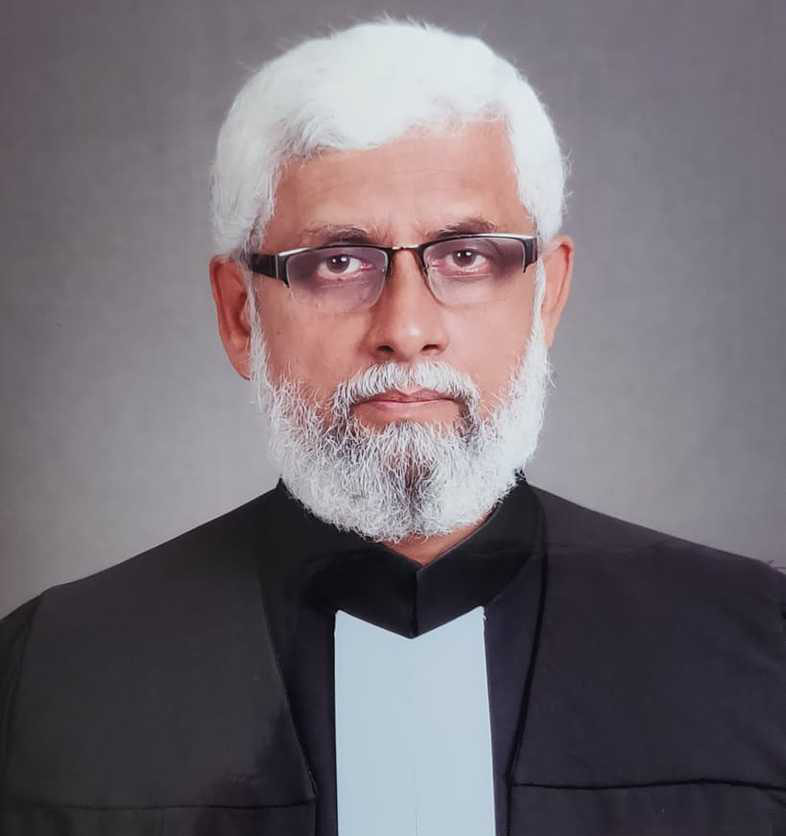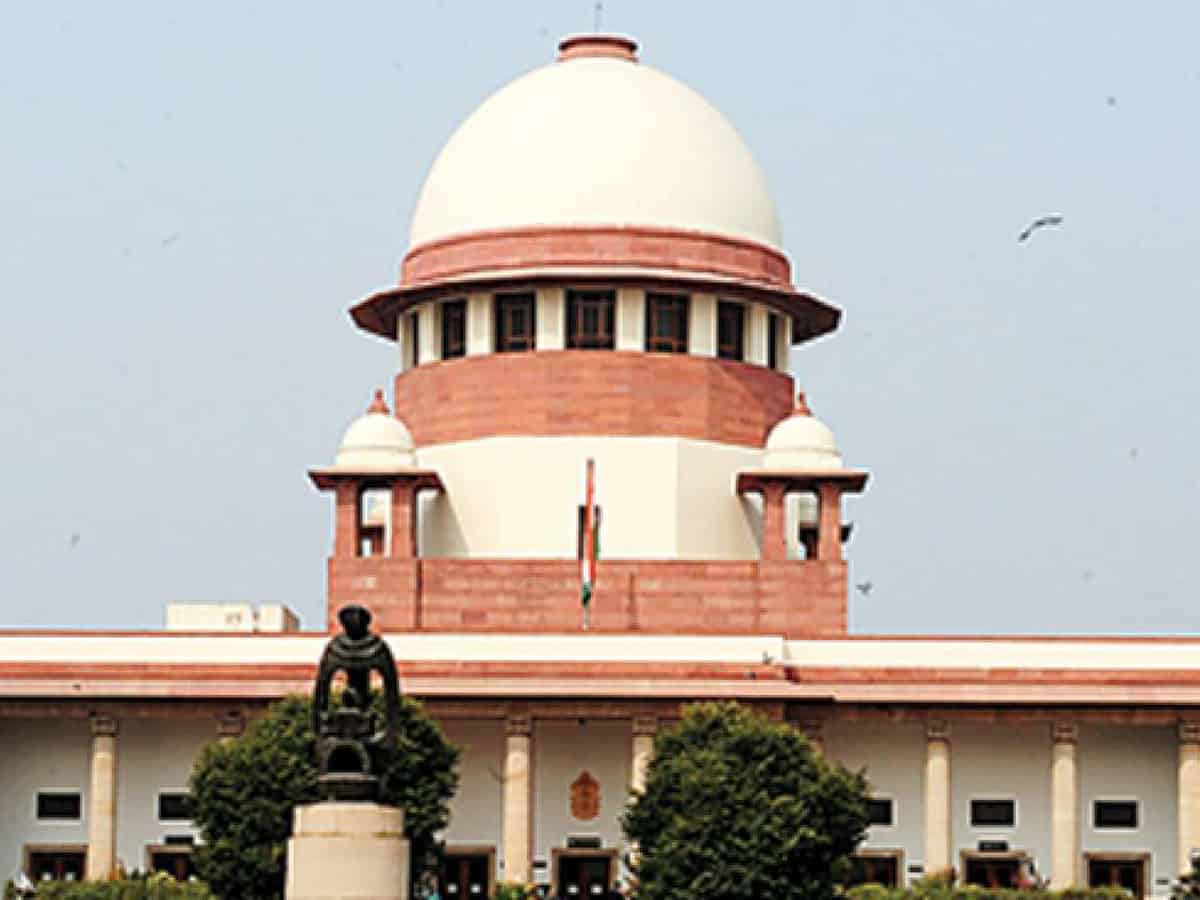
Supreme Court Judges do not indulge in idle talk. They weigh their words, choose them well, say few things, hint at many others. Deepak Gupta, retiring judge, Supreme Court, made some observations. Other judges also, separately, recently, did (below, in italics) which we can à interpret alongside.
“Justice Agrawal, during Emergency faced a lot of pressure to pass orders in favour of the government. He did not succumb…was not confirmed as judge of Delhi high court and reverted as District & Sessions Judge.” à ergo, government pressurised judges to pass orders its way. Ergo, government interfered with the course of, attempted obstruction of, justice. Judges who dissented, faced adverse consequences. When authoritarianism increases, we presume this approach also follows.
“In a country which professes to follow the rule of law and the principle of separation of powers, there is no alternative to a totally independent judiciary.” à the judge was speaking of India, and as “professes” means “claims that one has a quality or feeling, especially when this is not the case” (Wikipedia), the judge has reservations whether as a country we do. Get the subtle caveat? Note the operative words, “no alternative…totally independent judiciary”.
“Under the constitution a duty is cast upon superior courts to protect rights of citizens …and…duty of this court to ensure that no person is deprived of life or liberty except in accordance with procedure prescribed by law.” à when Kashmir events and pre- and post Covid lockdown Delhi arrests and raids took place, it was SC’s duty to ensure compliance with law. Whether it did, who presided over which matters, passed what orders…he did not elaborate.
“When the Court does its duty and acts in favour of the citizens, sometimes there will be friction…” à court does its duty acting in favour of citizens, there is friction. Ergo, such friction arising from resistance to court discharging that duty, would be resistance from the adverse party, Government: who else can have friction with a Court? Hear what is not stated? If friction is generated between government and court when court does justice, Government is at times unhappy when justice is done?! Good grief! Whither benevolent governance?
“As judges we take an oath to uphold the constitution and the laws.…we must decide matters according to law and not according to our personal likes and prejudices.” à Despite oath of office, why does a retiring SC judge need to remind other judges (“we” means that – none else decides matters?) of what must be done? Judge of the SC, he did not say “we must continue to decide…”. He said we must decide. What is already present is not something we say “must be done”: must be done means as yet remains, needs to be done. Ergo, matters ought to, but sometimes are not, decided according to law but according to personal likes and prejudices. Can you hear the content left unstated? Significant that the judge felt the need to say this. One might ask if context is recent verdicts.
Many times, I hear voices being raised…that the judiciary is no longer independent… à significantly, while voices asserting that find mention, the absent disclaimer or denial, unstated, reverberates. A very serious matter.
Our laws and our legal system are totally geared in favour of rich and the powerful. à I agree: especially legislation in the last few decades or so, starting with MISA, POTA, COCA, TADA, UAPA, all tending to oppress, repress and suppress, aided by injudicious interpretative exercises. Majoritarianism ensures minorities and underprivileged segments bear the brunt.
Both Bench and Bar owe a duty to that section of litigants which does not really have a voice…their cases are not put on the back-burner. à Newspapers report high-profile cases taken up, urgent orders issued, while matters of some citizens involving unlawful detentions, unwarranted prosecutions, and alleging deliberate State inaction face hurdles getting heard… Why did the judge feel the need to say this, wants changed?
In this battle between the rich and powerful on the one side and the voiceless, poor and downtrodden on the other, the scales of justice can never be balanced equally. If real justice has to be done then the scales of justice have to be weighted in favour of the underprivileged. à This is scathing indictment, if one reads carefully. Ostensible adherence to procedure following the letter of the law while ignoring its spirit is the bane of many judicial proceedings ignoring policies keeping the impoverished where they are while rich become billionaires. How many billions swindled from banks? Whose money sucked in to bail them out? What moral logic prohibits, political magic facilitates to write off billions in fraudulent debts, swindling fraudsters, scamsters, conniving bankers all walking free?
“…the eyes of the Goddess of Justice were not blindfolded…purposely…in the present day and age judges cannot live in ivory towers but must be aware of what is happening in the world around them.” à Judges seem to prefer unawareness of ground zero, and rely on reports of the State (despite, as Lokur, J, pointed out, figures of one week and the next show vast variations). Again, scathingly, ostrich as breed and plausible acceptability as judicial comfort-strategy both hinted at.
“The scales of justice to be really equal, must, in fact, be balanced in such a way that the poor and the underprivileged are not denied justice. à Extrapolating on adage justice must not only be done but also appear to be done, he raises the bar : the scales must not just appear balanced : the result must be justice! Get the difference: transcend appearances, get a grip on reality, deal with it. The underprivileged must not be denied justice.
Same judge, earlier words : “If a country has to grow in a holistic manner where not only economic rights but also civil rights of citizens are to be protected, dissent and disagreement have to be permitted, and in fact, should be encouraged. It is only if there is discussion, disagreement and dialogue that we can arrive at better ways to run the country. There can be no democracy without dissent.” à the detergent said “daag achhe hain”…the judge declares “dissent achhaa hai”, detentions and charges of sedition notwithstanding.
Chandrachud, Judge: “Blanket labelling of dissent as anti-national or anti-democratic strikes at the heart of our commitment to protect constitutional values and the promotion of deliberative democracy”. à Who does blanket labelling? State, which prosecutes people. If that is improper, it becomes persecution. Ergo, courts have a duty to step in and stop it apropos duty to Constitution, their consciences and the citizens whose rights they stand charged to uphold.
On majoritarianism: “…majoritarianism is the antithesis of democracy. In a democracy like ours…, the government in most cases does not represent the majority of the population…often not even the voting electorate… Therefore, when those in power claim they represent will of all the people that is more often than not a totally baseless claim.” à What would that mean? Governments, though elected, cannot ad hoc squander away assets built by past generations for future generations, entrusted for safekeeping, sacred trust, to hands of those elected to govern, not privatise, monetise, thereby myopically squander. Clearly, words to weigh, and consider, carefully.
Words coming shortly after a sedition charge for tweets allegedly spreading “fake news” about human rights violations in Kashmir: “The law of sedition is more often abused and misused. The people who criticise those in power are arrested by police officials on the asking of those in power, even if a person may get bail the next day from court.” Read the unstated beneath that expression, from a judge of the SC. We hope they’re heard where it matters.
Justice Lokur, another interview, to Thapar about the weeks court took to dispose of petition on right to life of migrant workers, leaving government to “take such steps as it finds fit to help the migrant workers”: “…the court let down these migrants. …court should and could have gone much further… ‘Whatever steps you’re taking is good enough’ is not an answer in a situation like this… A person has a right. If he has that right it has to be enforced. That’s it. You can’t say I hope and trust that somebody will enforce that right on his behalf. The person has a right. Why are you not enforcing it? …Supreme Court is not fulfilling its constitutional functions adequately.”
Assertions in-service held “against convention”, ineffective post-retirement advice ignored, it is imperative concerned serving judges construct corrective revivalist mechanisms, reversing erosion of standards hinted at, exerting themselves to restore the faith of the common man in the greatest, most powerful institution of justice the world has conceived.
With great power comes great responsibility. Only some, with courage of convictions, rise to the occasion, destined to leave behind legacies that give light to coming generations, their work their enduring self-portraits.
“Mirror, mirror, on…” Exit delusion, enter reality. होशियार
Shafeeq R. Mahajir is a well-known lawyer based in Hyderabad

